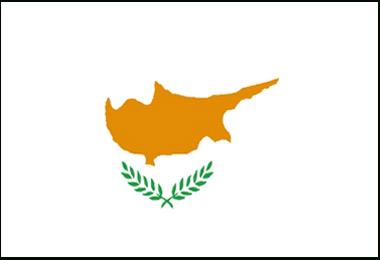Cyprus
2009-08-19 16:42 BJTSpecial Report: Asia Pacific |
» Modern History

Cyprus Flag
British rule lasted until August 1960 when, after a four-year liberation struggle, the island became independent and was proclaimed a Republic. The 1960 Constitution of the Cyprus Republic proved unworkable in many of its provisions and this made impossible its smooth implementation.
» Economy
Cyprus has a record of successful economic performance, reflected in rapid growth, full employment conditions and external and internal stability, almost throughout the post-Independence period. The underdeveloped economy, inherited from Colonial Rule in 1960, has been transformed into a modern economy, with dynamic services, industrial and agricultural sectors and advanced physical and social infrastructure.
» Tourism
It is general consensus that the healthy climate and natural beauties of Cyprus, as well as its archaeological wealth and the traditional hospitality of its people make the island an ideal holiday destination. Since the independence in 1960, tourism development has been accorded a very high degree of priority by the Cyprus Government.
» Culture
The History and Culture of Cyprus is among the oldest in the world. The first signs of civilization traced in archaeological excavations and research date back 9,000 years to the 7th millennium BC. This rich cultural landscape involves hundreds of archaeological sites scattered throughout the island, representing various historical periods in the island's evolution.
» Geography & Climate
Cyprus has an intense Mediterranean climate with the typical seasonal rhythm strongly marked in respect of temperature, rainfall and weather generally. Hot, dry summers from mid-May to mid-September and rainy, rather changeable winters from November to mid-March are separated by short autumn and spring seasons.
Editor: Yang Jie | Source:

 Mail
Mail Share
Share Print
Print


 Video
Video









 2009 China Central Television. All Rights Reserved
2009 China Central Television. All Rights Reserved